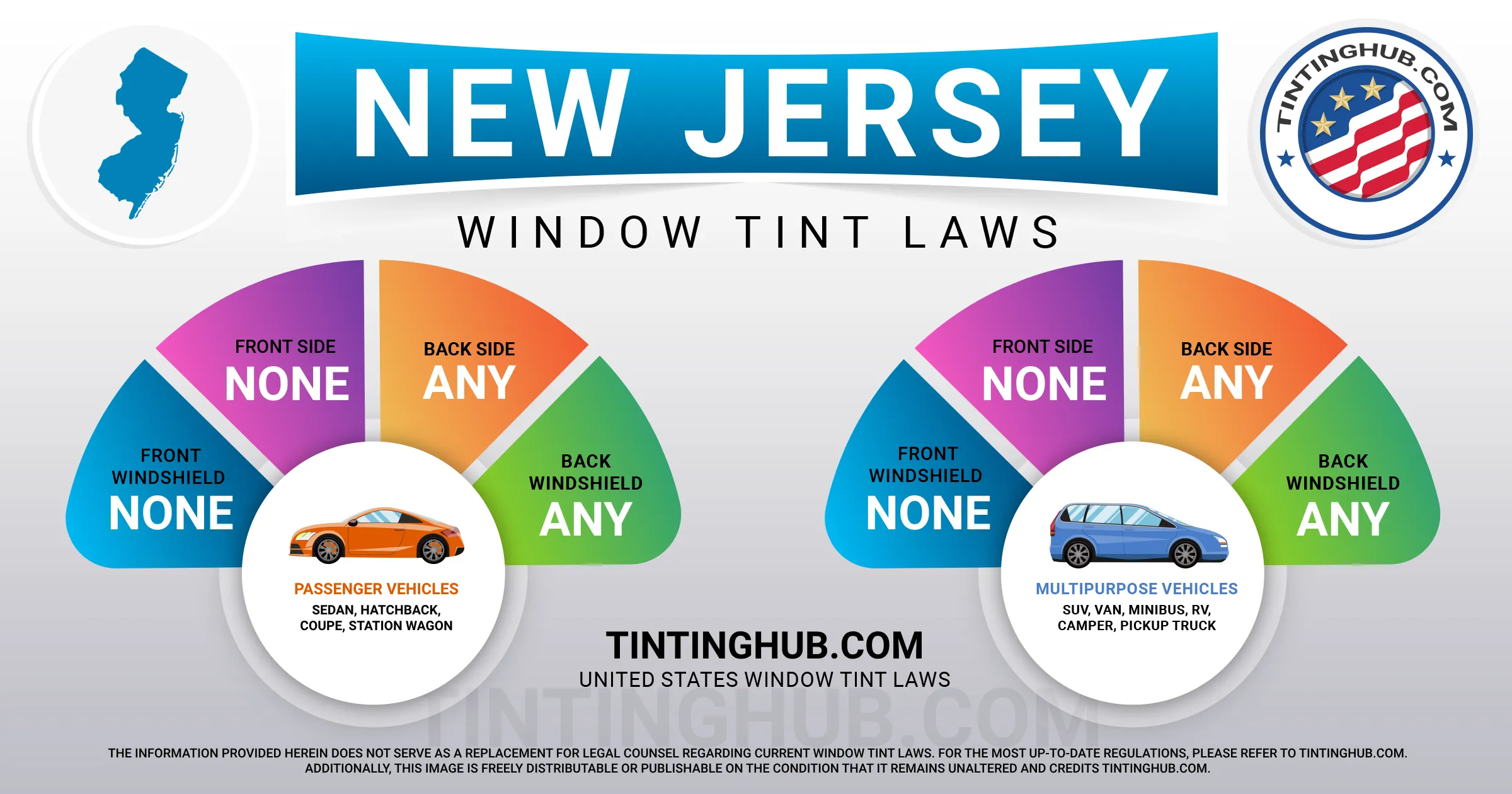When it comes to car window tinting, it’s essential to stay informed about the regulations in your state. In the great state of New Jersey, window tinting laws have been in place since 2003. This comprehensive guide will provide you with all the necessary information about New Jersey’s window tinting laws, from permissible tint darkness to tint reflection rules.

Understanding Window Tint Darkness in New Jersey
We measure the darkness of your car’s window tint using VLT (Visible Light Transmission), representing the percentage of visible light that the tint allows. New Jersey has specific guidelines for sedan cars and SUVs or vans when it comes to tint darkness:
Tint Darkness for Sedans
Windshield: You cannot apply tint on the windshield.
Front Side Windows: These windows do not allow tint.
Back Side Windows: You can apply any level of darkness to them.
Rear Window: You can apply any level of darkness on the rear window.
Tint Darkness for SUVs and Vans
Windshield: Tint is prohibited on the windshield.
Front Side Windows: Similar to sedans, no tint is allowed on these windows.
Back Side Windows: SUVs and vans have the flexibility to apply any level of darkness.
Rear Window: Any darkness is permitted for the rear window.
Window Tint Reflection in New Jersey
Window tint not only offers privacy but also reflects incoming light, reducing glare and heat. New Jersey’s window tint laws also address tint reflection:
Tint Reflection for Sedans
Front Side Windows: Mirrored or metallic appearances are not allowed.
Back Side Windows: The same rule applies here – you cannot have mirrored or metallic appearance.
Tint Reflection for SUVs and Vans
For SUVs and vans, the reflection rules mirror those for sedans:
Front Side Windows: Mirrored or metallic appearances are not allowed.
Back Side Windows: The tint on these windows should not have a mirrored or metallic appearance.
Additional New Jersey Window Tint Regulations
New Jersey’s window tint regulations go beyond darkness and reflection. Here are some other essential rules and regulations to keep in mind:
Side Mirrors: If your back window is tinted, dual side mirrors are required for safety reasons.
Restricted Colors: New Jersey law does not explicitly ban any specific tint colors.
Certificates: Film manufacturers have no obligation to certify the films they sell in the state.
Stickers: Unlike some states, New Jersey does not require stickers to identify legal tinting.
Medical Exceptions: New Jersey allows medical exemptions for special tint. For specific exemption details, consult the state’s laws.
Penalties: Violating New Jersey’s tinting laws can result in hefty fines. A first offense can lead to a maximum fine of $1,000, while subsequent offenses can incur fines of up to $5,000 (NJ Statutes 39:3-75.3).
It’s important to note that interpretations of New Jersey’s tinting laws may vary by county or place of residence. We always recommend double-checking our information with your local MVC or law enforcement authorities.
Stay Updated
Our commitment to providing accurate and up-to-date information on window tint laws in New Jersey is unwavering. As of 2023, this is the latest information available. If you come across any inaccuracies or updates, please don’t hesitate to contact us. We are your trusted industry leader for precise and reliable window tint law information.
